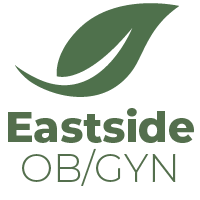Annual Well Woman Visits
Your yearly well-woman appointment is a preventative care and counseling visit to keep you healthy at every stage of life
The annual well woman gynecology visit is an essential component of providing comprehensive care to all Eastside OB/GYN patients. A well-woman visit helps women of all ages stay healthy, detect issues early, and prevent future problems from developing.
Since the annual well-woman exam appointment is a a preventative care and counseling visit, it is an excellent opportunity to talk with your Eastside OB/GYN provider about strategies to help maintain a healthy lifestyle and ways to minimize health risks throughout your lifetime.
When should I have my first gynecology appointment?
The American College of Obstetricians and Gynecologists recommends that girls have their first gynecology appointment between the ages of 13 and 15, and yearly thereafter. Starting annual visits early helps young women form a routine of annual visits, build rapport with their gynecologist, and establish a medical history for the future.
Regardless of when you schedule your first gynecology visit, you may be wondering what will happen during your appointment.
If you are a teenager, your first appointment may be simply a chat between you and your gynecologist. You may have questions about your periods, birth control, and sex. You’ll likely be a little nervous, and this is totally normal. During your first appointment, your gynecologist will provide you with accurate and confidential answers to all of your questions about your body, menstrual cycles, and sexuality. You may learn about pregnancy prevention, sexually transmitted diseases, and tips on staying healthy during your teen years and beyond.
What to expect during your well-woman appointment
Just like any other doctor’s visit, you will be asked to complete forms that will ask about your health history, family medical history, medications and supplements, and other details about your health. Your provider will ask about any changes over the prior year to help identify any areas of concern.
Since your well-woman visit is a counseling and preventative care appointment, your provider will typically start your visit with a discussion and review of your health history and habits. Some of the topics your gynecologist may ask about during your visit include:
- Medical history
- Family health history
- Mental health history including depression
- Sexual activity and sexual partners
- Diet and exercise habits
- Use of alcohol, tobacco, and other drugs
- Medications, supplements, vitamins, and herbs
- Home life and relationships
What happens during the physical exam?
Pelvic and breast exams typically begin at age 21 unless you are experiencing issues such as menstrual cycle problems, unusual or severe vaginal or pelvic pain, abnormal bleeding or vaginal discharge, or breast concerns such as swelling, tenderness, or lumps. If there are any concerns, your provider may do a physical exam before age 21.
After age 21, well-woman visits include a discussion and documentation of your health history, a full physical exam (checkup), and setting of health goals.
During the physical exam your provider will examine your body which may include:
- Measuring your height and weight
- Checking your blood pressure
- Taking your temperature
- Performing a clinical breast exam to feel for lumps, skin changes or nipple discharge
- Asking about your breast self-exam routine, and answering any questions about how to perform a breast self-exam to check for lumps and changes
- A pelvic exam to check your vulva, vagina, cervix, uterus, rectum, pelvis, and ovaries for any abnormalities
Will I get a Pap Smear / Pap Test?
A Pap test is a procedure that looks for precancerous cell changes on the cervix that may become cervical cancer if left untreated.
The American College of Obstetricians and Gynecologists (ACOG) no longer recommends annual Pap tests. Most women will have a Pap test every 3-5 years starting at age 21, depending on age and clinical history. There are exceptions to these guidelines which may result in more frequent screenings.
Breast cancer awareness and exam
Your gynecologist plays a critical role in helping reduce the incidence of hereditary breast and ovarian cancer by identifying patients with elevated risk. Other than skin cancer, breast cancer is the most common cancer among American women.
Mammograms are the best way to find breast cancer early, when it is easier to treat and before it is big enough to feel or cause symptoms.
During your well-woman visit, your provider will perform a clinical breast exam to feel for lumps or other changes. At home, being familiar with how your breasts look and feel can help you notice symptoms such as lumps, pain, or changes in size. BRCA genetic testing is not recommended for most people, but you may want this test if you and your provider think you are at higher risk of having the mutation.
Health goals and follow up appointments
Based on your visit, your provider may recommend additional labs or screenings. Take advantage of your time with your gynecologist during your well-woman visit to re-prioritize your health for the upcoming year. Be sure and get adequate physical activity, eat healthy, manage stress, watch your weight, and get enough sleep.
Schedule your annual well woman visit today!
Your annual well-woman visit as an important time to prioritize your health. Eastside OB/GYN is here to care for you through all of life’s stages, so schedule your annual well visit today!


